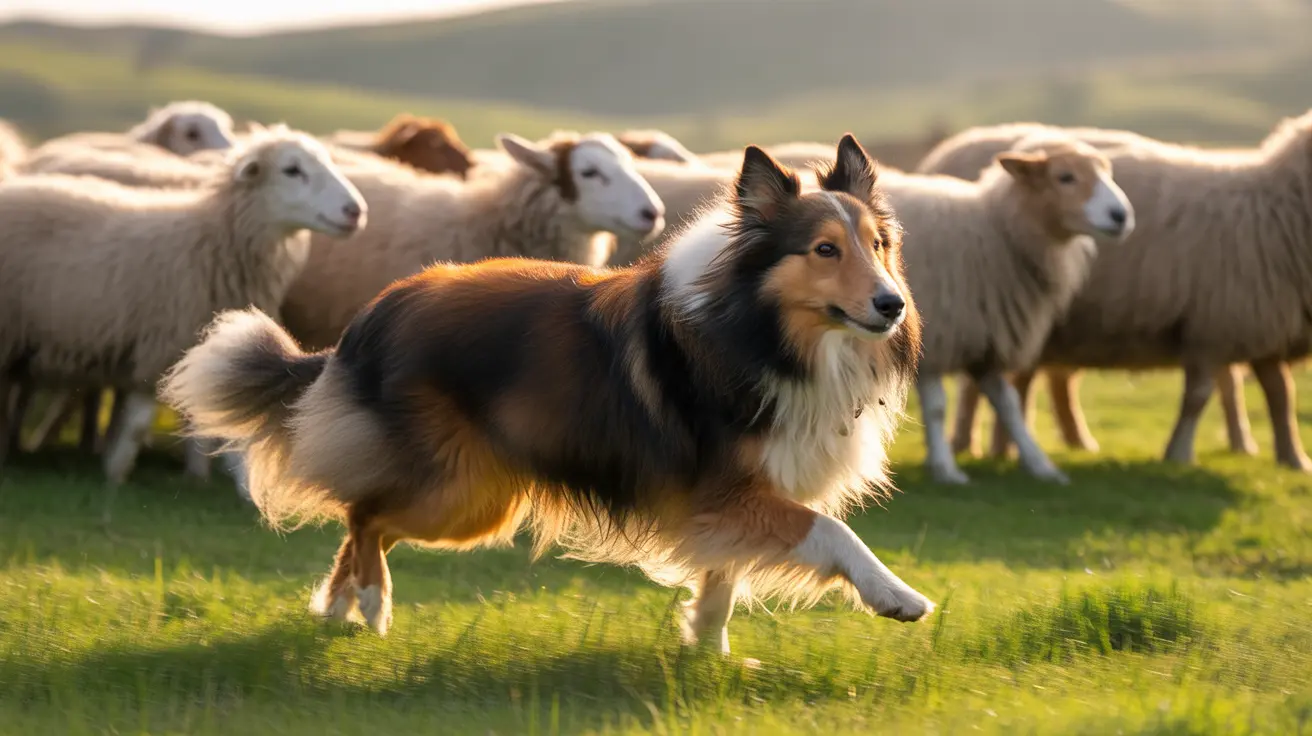Understanding Small Herding Dogs
Small herding breeds were specifically developed to work independently alongside farmers, managing livestock with remarkable efficiency despite their diminutive size. Their compact stature was often intentionally bred to help them dodge kicks from cattle while remaining agile enough to control much larger animals.
These breeds typically weigh under 30 pounds but possess the intelligence, stamina, and work ethic of their larger herding cousins. Their small size makes them particularly adaptable to modern living situations while retaining their working dog capabilities.
Popular Small Herding Breeds
Pembroke Welsh Corgi
Perhaps the most famous of the small herding breeds, the Pembroke Welsh Corgi gained worldwide recognition as Queen Elizabeth II's preferred companion. These sturdy little dogs can reach impressive speeds of up to 25 mph and were specifically bred to be low to the ground for their cattle-herding duties. Despite their small size, they possess remarkable strength and endurance.
Shetland Sheepdog
The Shetland Sheepdog, or "Sheltie," originated in Scotland's Shetland Islands. Weighing under 30 pounds, these intelligent and gentle dogs excel in both working roles and as family companions. Their high trainability makes them outstanding performers in dog sports and obedience competitions.
Cardigan Welsh Corgi
The older and rarer of the Welsh Corgi breeds, the Cardigan weighs between 25-38 pounds and is distinguished by its long tail and fox-like appearance. They're known for their strong herding instincts and require early socialization to manage their natural tendencies.
Traits and Characteristics
Intelligence and Trainability
Small herding breeds consistently rank among the most intelligent dog breeds. Their working heritage demands quick thinking and independent decision-making, making them highly responsive to training. However, this intelligence requires regular mental stimulation to prevent boredom and destructive behaviors.
Exercise Requirements
Despite their small size, these breeds have significant exercise needs. Their working background demands both physical activity and mental challenges. Most require at least an hour of dedicated exercise daily, along with additional mental stimulation through training or puzzle toys.
Living with Small Herding Dogs
While these breeds can adapt to various living situations, they thrive best with active families who can provide adequate exercise and mental stimulation. Their herding instincts may manifest in attempting to herd children or other pets, requiring proper training and management.
Many excel in dog sports such as agility, flyball, or herding trials, which provide excellent outlets for their natural abilities and energy. Regular training sessions help maintain their mental acuity and strengthen the bond between dog and owner.
Frequently Asked Questions
What are the best small herding dog breeds for families with children?
Shetland Sheepdogs and Pembroke Welsh Corgis are excellent choices for families with children. They're gentle, protective, and patient, though early training is essential to manage herding behaviors around kids.
How much daily exercise do small herding dogs like Corgis and Shetland Sheepdogs need?
Small herding breeds typically need 60-90 minutes of exercise daily, including walks, play sessions, and mental stimulation activities. Dog sports or structured training can help meet these requirements.
Why do small herding breeds often bark a lot, and how can I manage their vocal behavior?
Barking was historically important for herding work. To manage excessive barking, provide plenty of exercise, mental stimulation, and consistent training in quiet commands from an early age.
How do the herding instincts of small breeds like the Cardigan Welsh Corgi affect their behavior at home?
These breeds may attempt to herd family members, pets, or moving objects by nipping at heels or circling. Early socialization and training can help channel these instincts appropriately.
What are common health issues to watch for in small herding dog breeds and how do I care for them?
Common health concerns include hip dysplasia, back problems (especially in Corgis), and eye issues. Regular veterinary check-ups, maintaining healthy weight, and appropriate exercise are essential for prevention.
Conclusion
Small herding dog breeds offer a unique combination of intelligence, loyalty, and working ability in compact packages. While they require dedicated exercise and training, their adaptability and loving nature make them excellent companions for active families willing to meet their needs. Understanding their herding heritage helps owners provide appropriate outlets for their natural instincts while building strong, lasting bonds.






